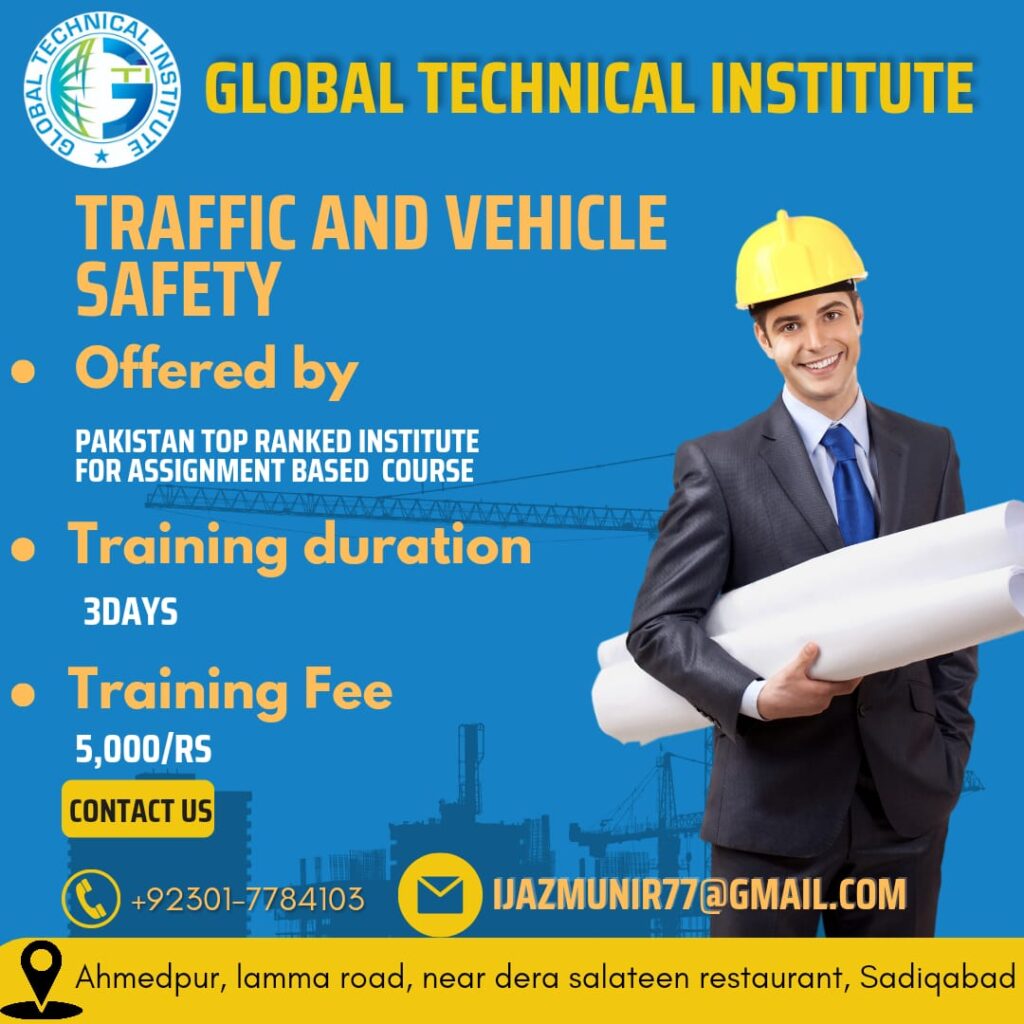Trafic and Vehicle Saftey

Trafic and Vehicle Saftey
Traffic and vehicle safety refer to the measures taken to prevent accidents, injuries, and fatalities involving vehicles on the road. It involves various aspects such as vehicle design and manufacturing, road infrastructure, driver behavior, and traffic laws and regulations. Here are some key points related to traffic and vehicle safety:
-
Vehicle Design and Manufacturing: Vehicle manufacturers have a responsibility to design and manufacture vehicles that meet safety standards and can protect occupants in the event of an accident. Safety features such as seat belts, airbags, and anti-lock brakes can reduce the risk of injuries and fatalities in the event of a crash.
-
Road Infrastructure: Road infrastructure plays a critical role in traffic and vehicle safety. Properly designed and maintained roads, signage, and traffic signals can help to reduce the risk of accidents and fatalities. Additionally, safety features such as guardrails and crash barriers can help to protect drivers and passengers in the event of a crash.
-
Driver Behavior: Driver behavior is a significant contributor to traffic accidents. Distracted driving, driving under the influence of drugs or alcohol, and speeding can all increase the risk of accidents. Education and awareness campaigns can help to encourage safe driving practices and reduce the number of accidents on the road.
Scope of Trafic and Vehicle Saftey Certification
Obtaining a certification in traffic and vehicle safety can offer numerous benefits for individuals working in this field, including:
-
Improved Safety Knowledge: A certification in traffic and vehicle safety can provide individuals with a comprehensive understanding of the principles of road safety, including vehicle design, road infrastructure, driver behavior, and traffic laws and regulations. This knowledge can help individuals to identify potential hazards and implement measures to mitigate risks and prevent accidents.
-
Career Advancement: A certification in traffic and vehicle safety can demonstrate an individual’s commitment to ongoing professional development and can lead to career advancement opportunities in fields such as traffic engineering, transportation planning, road safety auditing, and law enforcement.
-
Increased Employability: Many employers in the transportation and road safety industries require their employees to have a certification in traffic and vehicle safety. Obtaining this certification can improve an individual’s employability and open up job opportunities.
Job Opportunites After Trafic and Vehicle Saftey Course
Completing a course in traffic and vehicle safety can provide individuals with a broad range of knowledge and skills relevant to various career opportunities in this field. Here are some job opportunities that individuals with a traffic and vehicle safety course certification can consider:
-
Traffic Engineer: Traffic engineers design and plan roadways, intersections, and other transportation infrastructure to improve safety, mobility, and efficiency. A traffic and vehicle safety course certification can provide individuals with the knowledge and skills needed to design and implement safe and efficient transportation systems.
-
Transportation Planner: Transportation planners work to develop and implement plans for efficient and safe transportation systems. They analyze traffic patterns, develop transportation models, and coordinate with stakeholders to plan for the future of transportation systems. A traffic and vehicle safety course certification can help individuals to understand the key principles of transportation planning and how to design and implement effective transportation strategies.
